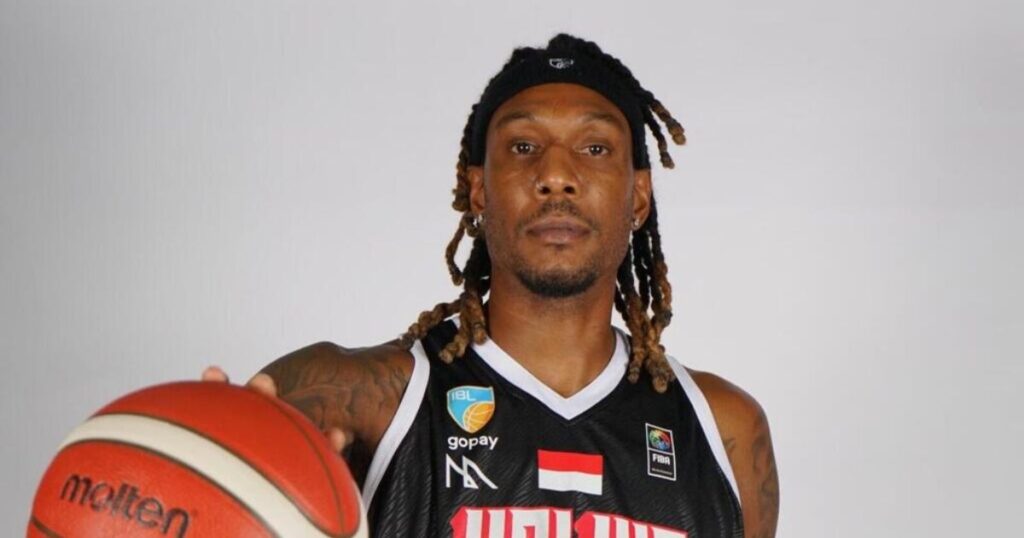The case of American basketball player Jarred Shaw continues to highlight the devastating human cost of Indonesia’s archaic cannabis laws. Since our previous coverage, Shaw has spoken publicly for the first time about his experience, revealing the personal struggle behind his arrest and the medical necessity that led to his current predicament.
Shaw, a 35-year-old former Utah State player who helped Prawira Bandung win the Indonesian Basketball League championship in 2023, remains in pre-trial detention five months after his arrest. His crime? Attempting to treat his incurable Crohn’s disease with 132 cannabis gummies worth approximately $400.
Jarred Shaw Breaks His Silence
In a recent interview with The Guardian conducted from his prison cell outside Jakarta, Shaw provided heartbreaking insight into his situation. “I use cannabis as medicine,” he explained. “I have an inflammatory condition called Crohn’s disease that’s incurable. There’s no medicine apart from cannabis that stops my stomach from aching.”
The 6-foot-11 athlete described living with constant pain during previous seasons when he went without cannabis to comply with Indonesian law. This year, health concerns drove him to make what he calls a “stupid mistake” – importing the gummies that would lead to his arrest by 10 undercover officers.
Shaw’s words paint a picture of desperation rather than criminal intent: “With my stomach condition, sometimes it’s hard for me to keep food down or go to the toilet. It just soothes the pain a little bit.”
The Psychological Toll
The mental health impact of Shaw’s imprisonment cannot be understated. During his first two months in detention, he described being at “the lowest point in [his] life” and in a “really dark mental place.”
“I felt helpless and alone,” Shaw told The Guardian. “I didn’t want to wake up again.”
Only through prayer, faith, and access to a prison gym has Shaw begun to regain his mental stability while sharing a cramped cell with a dozen other men. His resilience shines through despite the circumstances: “I just turned 35 but I still feel young. I would love to continue my basketball career.”
Indonesia’s Disproportionate Response
The contrast between Shaw’s medical need and Indonesia’s legal response remains starkly disproportionate. Police officials have indicated Shaw could face life imprisonment or execution by firing squad – penalties typically reserved for the most serious violent crimes.
Adding insult to injury, Shaw was paraded before media in handcuffs and an orange prison uniform while police displayed his cannabis gummies like trophies from a major drug bust. The optics were designed to portray him as a dangerous criminal rather than a patient seeking relief from chronic pain.
Shaw disputes the weight-based charges against him, noting that authorities are including the candy itself in their calculations. “They’re making it seem like I’m this big drug dealer,” he said. “Why would I bring the candy here to sell? It was for personal use.”
Medical Cannabis Research Supports Jarred Shaw’s Claims
Jarred Shaw’s use of cannabis for Crohn’s disease isn’t unfounded. Plenty of research has found that cannabis can be effective for treating chronic pain without serious side effects. The potential benefits for inflammatory bowel conditions like Crohn’s disease have been documented in multiple studies, though research remains limited due to prohibition policies worldwide.
Shaw explained his holistic approach to treatment: “I don’t use it to have fun and go party. It just soothes the pain a little bit.” He also noted cannabis helps manage his anxiety, depression, and insomnia – common comorbidities with chronic inflammatory conditions.
The comparison to Brittney Griner’s case in Russia is inevitable, though Shaw has received significantly less media attention despite facing potentially harsher consequences. Griner was released after 10 months through a prisoner exchange, but Shaw has no such diplomatic leverage working in his favor.
The U.S. embassy in Jakarta acknowledges Shaw’s case but has not commented publicly on diplomatic efforts to secure his release.
The Global Divide on Cannabis
Jarred Shaw’s case exemplifies the global inconsistency in cannabis policy. While he faces execution in Indonesia, patients in neighboring Thailand can legally access cannabis for medical purposes. Nearly half of U.S. states have legalized recreational cannabis, and dozens of countries worldwide recognize its medical value.
Indonesia’s approach reflects outdated “war on drugs” mentality that prioritizes punishment over public health. The country’s more than 500 death row inmates for drug offenses – including nearly 100 foreigners – demonstrate the scope of this policy failure.
Five months after his arrest, Shaw still awaits his first court appearance. His case is more than one man’s struggle – it’s a test of whether Indonesia will continue prioritizing outdated prohibition over basic human compassion.
Shaw’s words should resonate with anyone who believes medical patients deserve access to effective treatments: “What they consider drugs, I consider medicine. It’s just different cultures.”
As global attitudes toward cannabis continue evolving, cases like Shaw’s serve as stark reminders of prohibition’s human cost. No one should face execution for seeking relief from chronic pain, regardless of their nationality or location.
The international cannabis community must continue advocating for Shaw’s release while pushing for policy reforms that prioritize health over punishment. His freedom depends not just on Indonesian courts, but on sustained public pressure for justice and medical freedom.
Featured image from https://www.ynetnews.com/ via Tangerang Hawks
















